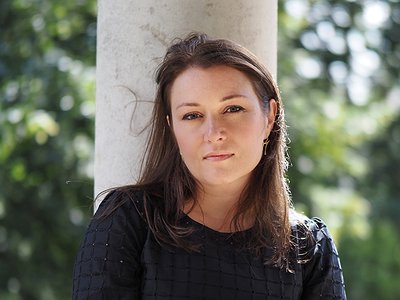Part 2
Take us through a day in your life, from a possible morning routine through to your work, please. Do you have a fixed schedule? How do music and other aspects of your life feed back into each other - do you separate them or instead try to make them blend seamlessly?
My schedule prioritises my seasonal teaching commitments, punctuated by various creative/passion projects that tend to take over my life for short, intense periods. Everything feeds into everything else: listening, playing and making music feeds into the writing, and the writing and teaching feeds into making, with all things bringing me loads of pleasure and satisfaction together.
Can you talk about a breakthrough piece in your career? Why does it feel special to you? When, why and how did you start working on it, what were some of the motivations and ideas behind it?
Blackstar Theory has been the most significant milestone for me. My first monograph, and the first time I dared to believe I was an author with a unique point of view and something to offer. I don’t think I’ve worked so hard, with such concentrated effort and care, on anything in my whole life. I feel like that booked turned me inside out, and, rather miraculously, it wasn’t the research so much as the writing process itself, that revealed the new knowledge to me. Something about wrapping words around big ideas taught me so much about the very thing I was trying to write about.
The original motivation was to bring an accessible form of musicological analysis to the greater Bowie discourse, which tends to focus critically on his legacy impacts on culture, fashion, and gender/performativity. I always had a bee in my bonnet about how so many writers on Bowie focus only on lyrics, hardly ever meaningfully engaging critically with his music, despite the fact he devoted most of his life to developing the artform.
There are many descriptions of the ideal state of mind for being creative. What is it like for you? What supports this ideal state of mind and what are distractions? Are there strategies to enter into this state more easily?
I feel like the only useful time is found in three-hour chunks. Anything less and I struggle to achieve any depth, or sense of making progress. I like to go on long walks to chew on ideas. Being mindful of my own creative practice – especially doing my practice-based PhD in music – taught me to be patient. Sometimes you feel the presence of an idea or solution, but sometimes these things need to sit, settle, and start to crystallise before they can make sense.
Music and sounds can heal, but they can also hurt. Do you personally have experiences with either or both of these? Where do you personally see the biggest need and potential for music as a tool for healing?
I can’t think of an example where sounds have hurt me, or I’ve observed them hurting others; for sure I’ve heard and felt music that I thought was ugly and obnoxious, though I only ever seem to feel that way when I perceive a lack of care or respect in the performance or production process. As for music’s healing power, I know that there’s special miracle cures one can access while experiencing music collectively – gigs, concerts, vibes, catharsis. I believe it’s extremely good and beneficial for your mental health. I was at the Sons of Kemet gig at the Roundhouse a few weeks ago, and you could really feel it, how for so many like me in the crowd this was the first time back after a long time away. Medicine for the soul.
There is a fine line between cultural exchange and appropriation. What are your thoughts on the limits of copying, using cultural signs and symbols and the cultural/social/gender specificity of art?
I’m a big believer in attribution. Credit and cite. Link to the originator. It’s basic respect at this point. Be open about adapting someone else’s materials, handle the signifiers thoughtfully. Interpolation is an art unto itself.
Our sense of hearing shares intriguing connections to other senses. From your experience, what are some of the most inspiring overlaps between different senses - and what do they tell us about the way our senses work?
For me, the sensual entanglement I most enjoy is the temporal one – how music can slow down, speed up life. Bending, demarcating, compressing, elongating our sense of time, the speed of life. Music can batter or caress the seconds that pass. It can intensify and eternalise these experiences. What magic!
Art can be a purpose in its own right, but it can also directly feed back into everyday life, take on a social and political role and lead to more engagement. Can you describe your approach to art and being an artist?
It’s trying to make sense of being alive. Putting frames around the chaos so I can examine and understand a little bit of it.
What can music express about life and death which words alone may not?
Music articulates how it feels to be made of matter, to vibrate as a blob of soft tissues and water, to embody and experience sensations alongside everything else in the natural world, to be formed and transformed.





